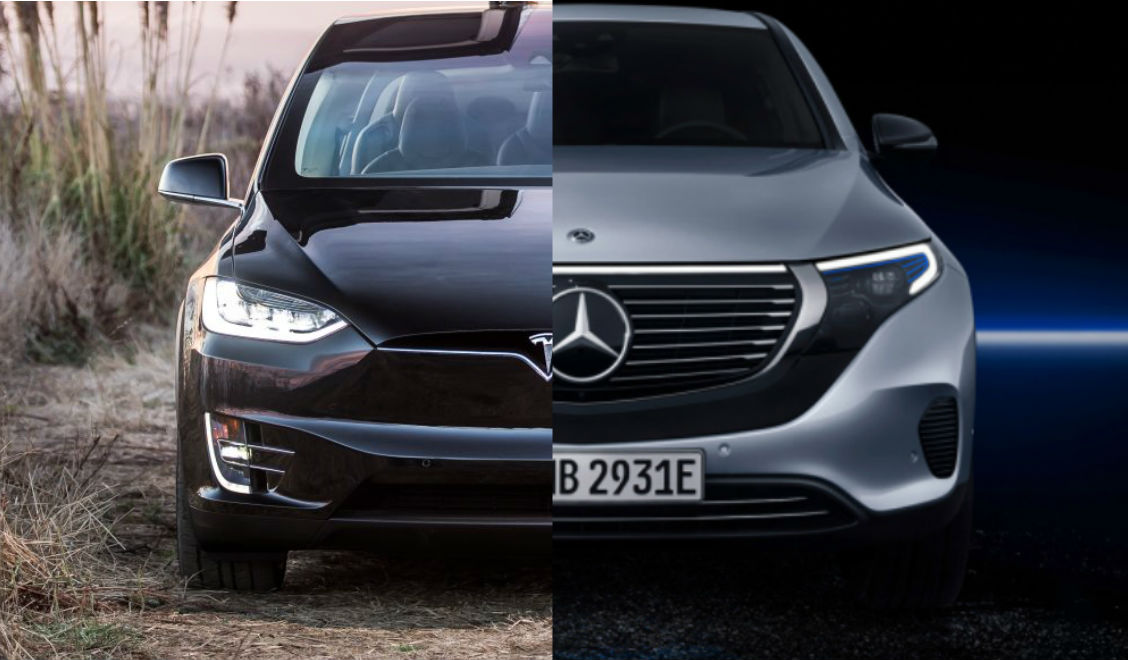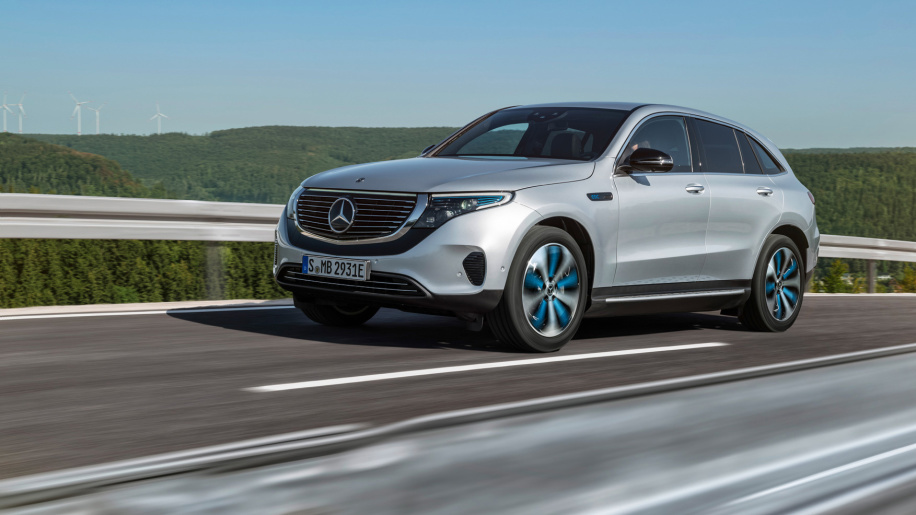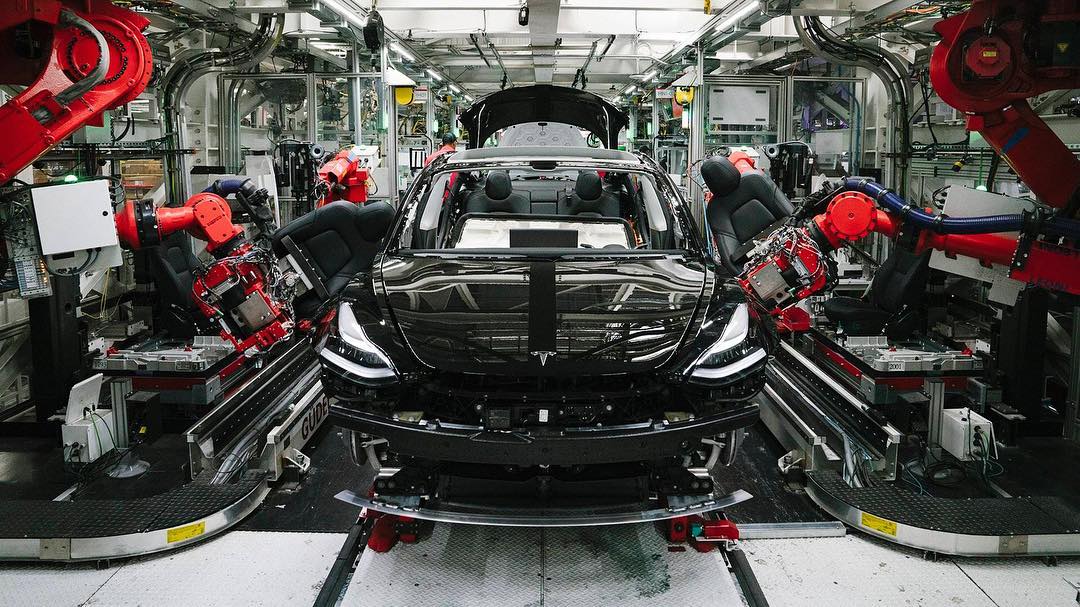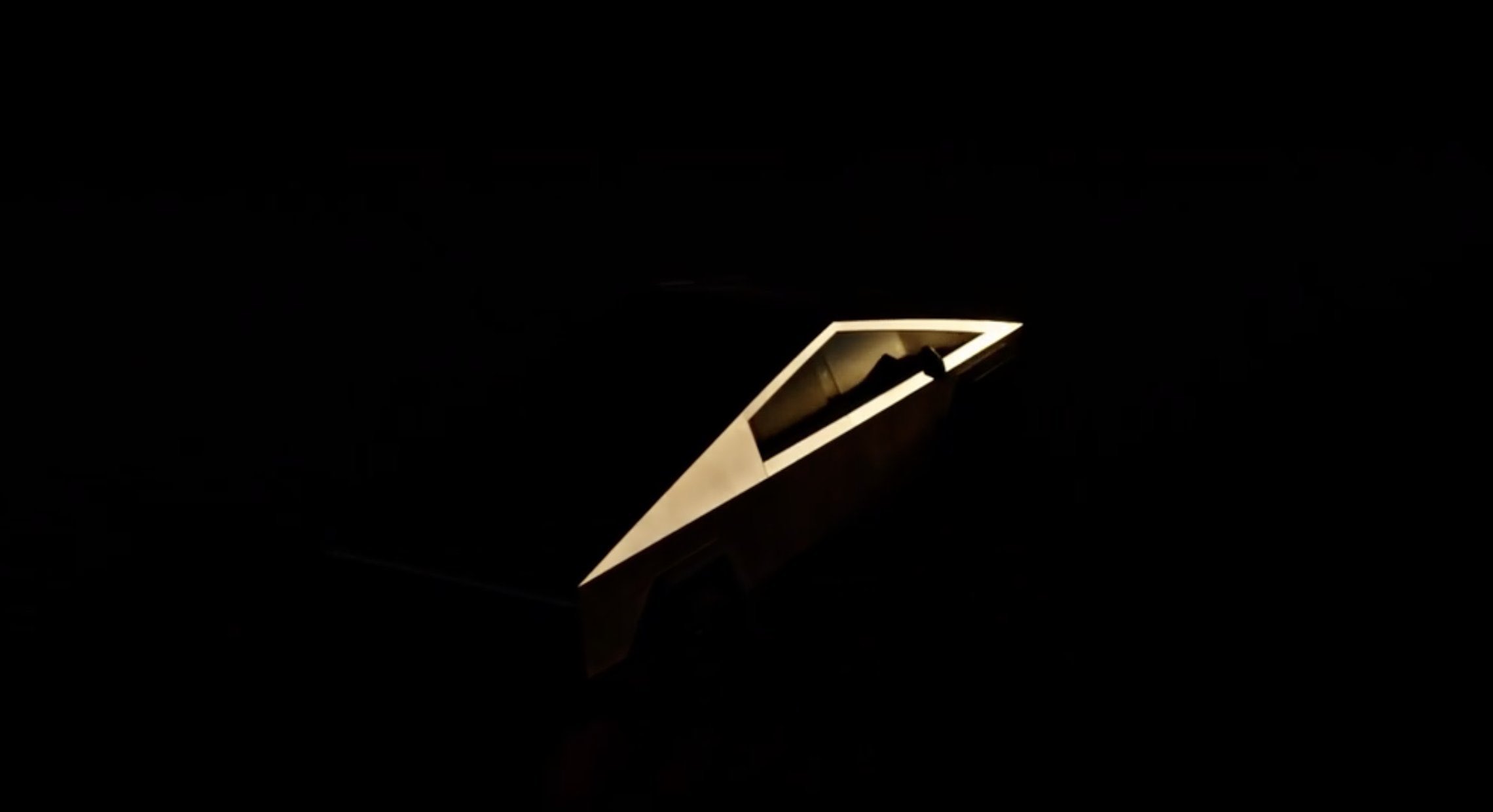

Investor's Corner
Tesla’s experience in electric cars emphasized anew after Mercedes EQC reveal
Earlier today, Tesla stock was given a Sell rating by Goldman Sachs, citing the arrival of competitors from established automakers. Some of these competitors are dubbed as “Tesla Killers,” such as the Jaguar I-PACE and the Mercedes-Benz EQC. The financial firm’s renewed Sell rating on Tesla appears to have affected the sentiment of some investors, resulting in TSLA stock ending the day down 4.21% at $288.95 per share.
Earlier today, the electric car industry also welcomed its latest vehicle from legacy automaker Mercedes-Benz. At an event in Stockholm, Sweden, Daimler AG Chief Executive Officer Dieter Zetsche unveiled the Mercedes-Benz EQC, an all-electric crossover SUV that symbolizes the company’s commitment to the upcoming electrification of the transport industry.
“There is no alternative to betting on electric cars, and we’re going all in. It is starting right now,” Zetsche said.
Mercedes-Benz tried hard with the EQC, with Zetsche stating that the vehicle will be profitable, and that it would “offer the best package” compared to rivals. The EQC also looks very much like a conventional Merc SUV, with its almost understated lines, its high ground clearance, and its tough stance. The EQC’s basic specs are quite decent, with two electric motors that produce 402 hp and 564 lb-ft of torque. The SUV can accelerate from 0-60 mph in 4.9 seconds and hit a top speed of around 112 mph. That being said, the Mercedes-Benz EQC’s range and production date ultimately prove that it won’t be so easy for legacy automakers to gain EV expertise that is comparable to Tesla’s.
The Mercedes-Benz EQC is equipped with an 80 kWh battery pack, which puts its size between the base Model X’s 75 kWh battery pack and the Jaguar I-PACE’s 90 kWh battery. Despite its generous battery size, the EQC’s estimated range is very conservative at around 200 miles per charge. Charging the vehicle from 10% to 80% is also estimated to take around 40 minutes. The EQC’s apparent lack of range has not gone unnoticed. Alex Roy, a veteran of the auto industry, for one, noted that the EQC’s range was a big “miss” for the established German automaker.

In a way, this could be attributed to Mercedes-Benz’s lack of experience in designing and building all-electric cars. And it’s not just Mercedes-Benz, either. Jaguar’s I-PACE is listed with a 240-mile range, but informal, real-world tests online have noted that the vehicle’s battery consumption is quite high. The same could be true for the EQC. It might have a big enough battery, but it could prove to be the electric equivalent of a gas guzzler.
This is something that Tesla has refined over the years. Elon Musk has opted to develop Tesla’s battery packs and even its software in-house, allowing the company to create vehicles that just work. In terms of range, Tesla’s cars usually come very close to their rated range, in some instances even exceeding it. Even the Model X 75D — one of Tesla’s largest, heaviest offerings — could go as far as 237 miles with a 75 kWh battery. Tesla’s progress in developing and building electric cars ultimately cannot be discounted, as Volkswagen AG, a prominent German automaker, was one of the investors willing to help fund Tesla’s attempted privatization.
Another notable detail from the Mercedes-Benz EQC’s unveiling that validated Tesla’s experience in building electric cars is the German-made SUV’s production timeline. Mercedes expects to start manufacturing the EQC sometime next year, with deliveries beginning in 2020. Compared to Tesla’s hyper-aggressive timetables, Mercedes-Benz’s timeline is very conservative, especially considering that the automaker is looking to build the EQC in some of its existing facilities.
A Tesla Model 3 being assembled.
There is very little doubt that Tesla is the company that ultimately made electric cars desirable, proving to consumers that battery-powered vehicles are actually realistic alternatives to fossil fuel-powered cars. Since starting the production of the Tesla Roadster, the company has gained a lot of experience, a lot of it coming from trial and error. Over the years, Tesla has refined its battery technology, to the point where the company is now attempting to hit a battery pack cost of $100 per kWh. Its 2170 cells that power the Model 3 are also proving to be impressive, with Detroit veteran Sandy Munro praising it as some of the finest batteries he has ever analyzed.
A central part of the Tesla Killer thesis is that competitors from established automakers can easily catch up and overtake the California-based company with vehicles that are far superior in quality and performance. If the range and estimated delivery date of the Mercedes-Benz EQC are any indication, it appears that the arrival of these competitors might be just a little bit too late. After all, by 2020, Tesla is planning to start the production of the next-generation Tesla Roadster, a supercar to end all supercars. The Tesla Model Y, a CUV expected to be even more popular than the Model 3, would likely be in production by then as well.
Watch the Mercedes-Benz EQC’s unveiling in the video below.
Elon Musk
Tesla analyst issues stern warning to investors: forget Trump-Musk feud

A Tesla analyst today said that investors should not lose sight of what is truly important in the grand scheme of being a shareholder, and that any near-term drama between CEO Elon Musk and U.S. President Donald Trump should not outshine the progress made by the company.
Gene Munster of Deepwater Management said that Tesla’s progress in autonomy is a much larger influence and a significantly bigger part of the company’s story than any disagreement between political policies.
Munster appeared on CNBC‘s “Closing Bell” yesterday to reiterate this point:
“One thing that is critical for Tesla investors to remember is that what’s going on with the business, with autonomy, the progress that they’re making, albeit early, is much bigger than any feud that is going to happen week-to-week between the President and Elon. So, I understand the reaction, but ultimately, I think that cooler heads will prevail. If they don’t, autonomy is still coming, one way or the other.”
BREAKING: GENE MUNSTER SAYS — $TSLA AUTONOMY IS “MUCH BIGGER” THAN ANY FEUD 👀
He says robotaxis are coming regardless ! pic.twitter.com/ytpPcwUTFy
— TheSonOfWalkley (@TheSonOfWalkley) July 2, 2025
This is a point that other analysts like Dan Ives of Wedbush and Cathie Wood of ARK Invest also made yesterday.
On two occasions over the past month, Musk and President Trump have gotten involved in a very public disagreement over the “Big Beautiful Bill,” which officially passed through the Senate yesterday and is making its way to the House of Representatives.
Musk is upset with the spending in the bill, while President Trump continues to reiterate that the Tesla CEO is only frustrated with the removal of an “EV mandate,” which does not exist federally, nor is it something Musk has expressed any frustration with.
In fact, Musk has pushed back against keeping federal subsidies for EVs, as long as gas and oil subsidies are also removed.
Nevertheless, Ives and Wood both said yesterday that they believe the political hardship between Musk and President Trump will pass because both realize the world is a better place with them on the same team.
Munster’s perspective is that, even though Musk’s feud with President Trump could apply near-term pressure to the stock, the company’s progress in autonomy is an indication that, in the long term, Tesla is set up to succeed.
Tesla launched its Robotaxi platform in Austin on June 22 and is expanding access to more members of the public. Austin residents are now reporting that they have been invited to join the program.
Elon Musk
Tesla surges following better-than-expected delivery report
Tesla saw some positive momentum during trading hours as it reported its deliveries for Q2.

Tesla (NASDAQ: TSLA) surged over four percent on Wednesday morning after the company reported better-than-expected deliveries. It was nearly right on consensus estimations, as Wall Street predicted the company would deliver 385,000 cars in Q2.
Tesla reported that it delivered 384,122 vehicles in Q2. Many, including those inside the Tesla community, were anticipating deliveries in the 340,000 to 360,000 range, while Wall Street seemed to get it just right.
Tesla delivers 384,000 vehicles in Q2 2025, deploys 9.6 GWh in energy storage
Despite Tesla meeting consensus estimations, there were real concerns about what the company would report for Q2.
There were reportedly brief pauses in production at Gigafactory Texas during the quarter and the ramp of the new Model Y configuration across the globe were expected to provide headwinds for the EV maker during the quarter.
At noon on the East Coast, Tesla shares were up about 4.5 percent.
It is expected that Tesla will likely equal the number of deliveries it completed in both of the past two years.
It has hovered at the 1.8 million mark since 2023, and it seems it is right on pace to match that once again. Early last year, Tesla said that annual growth would be “notably lower” than expected due to its development of a new vehicle platform, which will enable more affordable models to be offered to the public.
These cars are expected to be unveiled at some point this year, as Tesla said they were “on track” to be produced in the first half of the year. Tesla has yet to unveil these vehicle designs to the public.
Dan Ives of Wedbush said in a note to investors this morning that the company’s rebound in China in June reflects good things to come, especially given the Model Y and its ramp across the world.
He also said that Musk’s commitment to the company and return from politics played a major role in the company’s performance in Q2:
“If Musk continues to lead and remain in the driver’s seat, we believe Tesla is on a path to an accelerated growth path over the coming years with deliveries expected to ramp in the back-half of 2025 following the Model Y refresh cycle.”
Ives maintained his $500 price target and the ‘Outperform’ rating he held on the stock:
“Tesla’s future is in many ways the brightest it’s ever been in our view given autonomous, FSD, robotics, and many other technology innovations now on the horizon with 90% of the valuation being driven by autonomous and robotics over the coming years but Musk needs to focus on driving Tesla and not putting his political views first. We maintain our OUTPERFORM and $500 PT.”
Moving forward, investors will look to see some gradual growth over the next few quarters. At worst, Tesla should look to match 2023 and 2024 full-year delivery figures, which could be beaten if the automaker can offer those affordable models by the end of the year.
Investor's Corner
Tesla delivers 384,000 vehicles in Q2 2025, deploys 9.6 GWh in energy storage
The quarter’s 9.6 GWh energy storage deployment marks one of Tesla’s highest to date.

Tesla (NASDAQ: TSLA) has released its Q2 2025 vehicle delivery and production report. As per the report, the company delivered over 384,000 vehicles in the second quarter of 2025, while deploying 9.6 GWh in energy storage. Vehicle production also reached 410,244 units for the quarter.
Model 3/Y dominates output, ahead of earnings call
Of the 410,244 vehicles produced during the quarter, 396,835 were Model 3 and Model Y units, while 13,409 were attributed to Tesla’s other models, which includes the Cybertruck and Model S/X variants. Deliveries followed a similar pattern, with 373,728 Model 3/Ys delivered and 10,394 from other models, totaling 384,122.
The quarter’s 9.6 GWh energy storage deployment marks one of Tesla’s highest to date, signaling continued strength in the Megapack and Powerwall segments.

Year-on-year deliveries edge down, but energy shows resilience
Tesla will share its full Q2 2025 earnings results after the market closes on Wednesday, July 23, 2025, with a live earnings call scheduled for 4:30 p.m. CT / 5:30 p.m. ET. The company will publish its quarterly update at ir.tesla.com, followed by a Q&A webcast featuring company leadership. Executives such as CEO Elon Musk are expected to be in attendance.
Tesla investors are expected to inquire about several of the company’s ongoing projects in the upcoming Q2 2025 earnings call. Expected topics include the new Model Y ramp across the United States, China, and Germany, as well as the ramp of FSD in territories outside the US and China. Questions about the company’s Robotaxi business, as well as the long-referenced but yet to be announced affordable models are also expected.
-

 Elon Musk4 days ago
Elon Musk4 days agoTesla investors will be shocked by Jim Cramer’s latest assessment
-

 News1 week ago
News1 week agoTesla Robotaxi’s biggest challenge seems to be this one thing
-

 Elon Musk2 weeks ago
Elon Musk2 weeks agoFirst Look at Tesla’s Robotaxi App: features, design, and more
-

 News2 weeks ago
News2 weeks agoSpaceX and Elon Musk share insights on Starship Ship 36’s RUD
-

 News2 weeks ago
News2 weeks agoWatch Tesla’s first driverless public Robotaxi rides in Texas
-

 News1 week ago
News1 week agoWatch the first true Tesla Robotaxi intervention by safety monitor
-

 News2 weeks ago
News2 weeks agoTesla has started rolling out initial round of Robotaxi invites
-

 Elon Musk2 weeks ago
Elon Musk2 weeks agoTesla to launch in India in July with vehicles already arriving: report

















